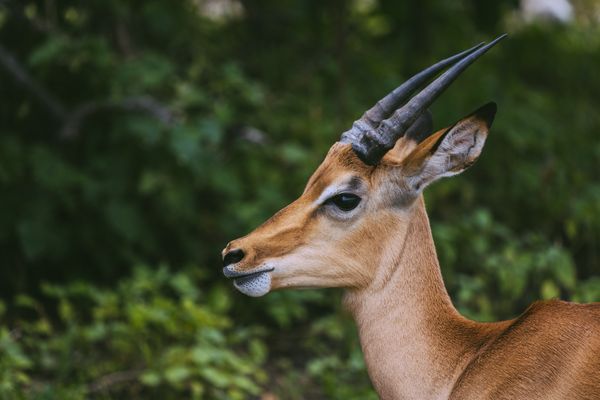Tourism body slams Botswana government over decision to build eight luxury lodges in wilderness area. By Oarabile Mosikare in Gaborone.****
Plans to build eight hotels inside one of Botswana’s national parks have been attacked by members of the tourist industry, who say the development could threaten one of Africa’s largest elephant populations. The Botswana government has faced strong resistance to its plan to offer 22,000 hectares (55,000 acres) of land for development inside the Chobe National Park. Development within the park, which lies close to the vast Okavango Delta, has traditionally been kept to a minimum due to concerns over the local ecosystem. In late March, the Department of Wildlife and Tourism announced the postponement of the plans after protests by concerned tourism stakeholders, who argued the lodges, each of which could have up to 50 rooms, would disrupt elephant migration routes. However, the government has since said it intends to forge ahead as planned. It recently invited 220 registered participants to a site visit in Chobe, and a tender evaluation is now expected to be finalised by June. Botswana is facing growing human-wildlife conflict, driven in part by the country’s estimated 130,000 elephant herd, the largest in the world. On March 28, the Hospitality and Tourism Association of Botswana (HATAB) noted their concern over the development of eight lodge sites along the Chobe River.
‘The Chobe National Park is already experiencing significant environmental pressure and congestion,’ it said in a statement.
‘This has been recognised since the early 1990s with the publication of the 1993 Chobe National Park management plan, and more recently the 2000 Chobe National Park management plan, both of which were gazetted and stipulated that no new lodges should be developed within Chobe National Park.
‘To the association’s knowledge, the addition of eight new lodges not only run contrary to the gazetted management plans but, in addition, will have a very significant impact on the Chobe National Park riverfront by inter alia increasing congestion, increasing environmental pollution, restricting animal movement and placing increased pressure on already threatened species such as the Chobe bushbuck.’
The HATAB spokesperson added: ‘Eight lodges in such close proximity will, it is suggested, have a substantial environmental impact especially in relation to pollution.’
An impala, photographed at Chobe National Park by Roger Erdvig, Unsplash. The government has said that measures will be taken to maintain the integrity of the ecological system of the park whilst ensuring increased employment and economic benefits within the tourism industry. This, they say, will allow Botswana to benefit from their natural resources and diversify economic beneficiation with the ultimate goal of improving their livelihood through tourism, which in 2019 accounted for 8.9 per cent of total employment in Botswana. The ministry further assured the public that all the developers will be required to carry out detailed environmental impact assessments for their sites as a measure to protect the integrity of the sites. The government said it had identified tourism as a sector that could contribute to the diversification of the economy from its reliance on diamonds. Tourism is the second biggest contributor to the country’s GDP, standing at 13.1 per cent of GDP in 2019.
‘It is important that we change our mindset if our goal to attain high income country status is to be achieved,’ said President Mokgweetsi Masisi. ‘We cannot remain locked in the thinking of the unproductive eras and expect to escape the middle-income trap.’
In April 2021, President Masisi’s application to acquire land on behalf of the state was met with opposition by members of the North-West District Council (NWDC), who voted to block it from acquiring a portion of tribal land, including a tract of Moremi Game Reserve. However, Kefentse Mzwinila, Botswana’s minister of land management, water and sanitation services, dismissed the council vote, telling parliament that the government did not need approval from the council and was merely soliciting the views of locals and the Tawana Land Board before making its decision. The government has also faced questions about the purpose of the lodges. A spokesperson, Andrew Sesinyi, hit back at accusations they were being built for the president personally, adding: ‘It would not be a personal or private retreat. The facility would occupy a land parcel in the Okavango Delta for the purposes of hosting dignitaries worthy of productive work outcomes for the nation.’


